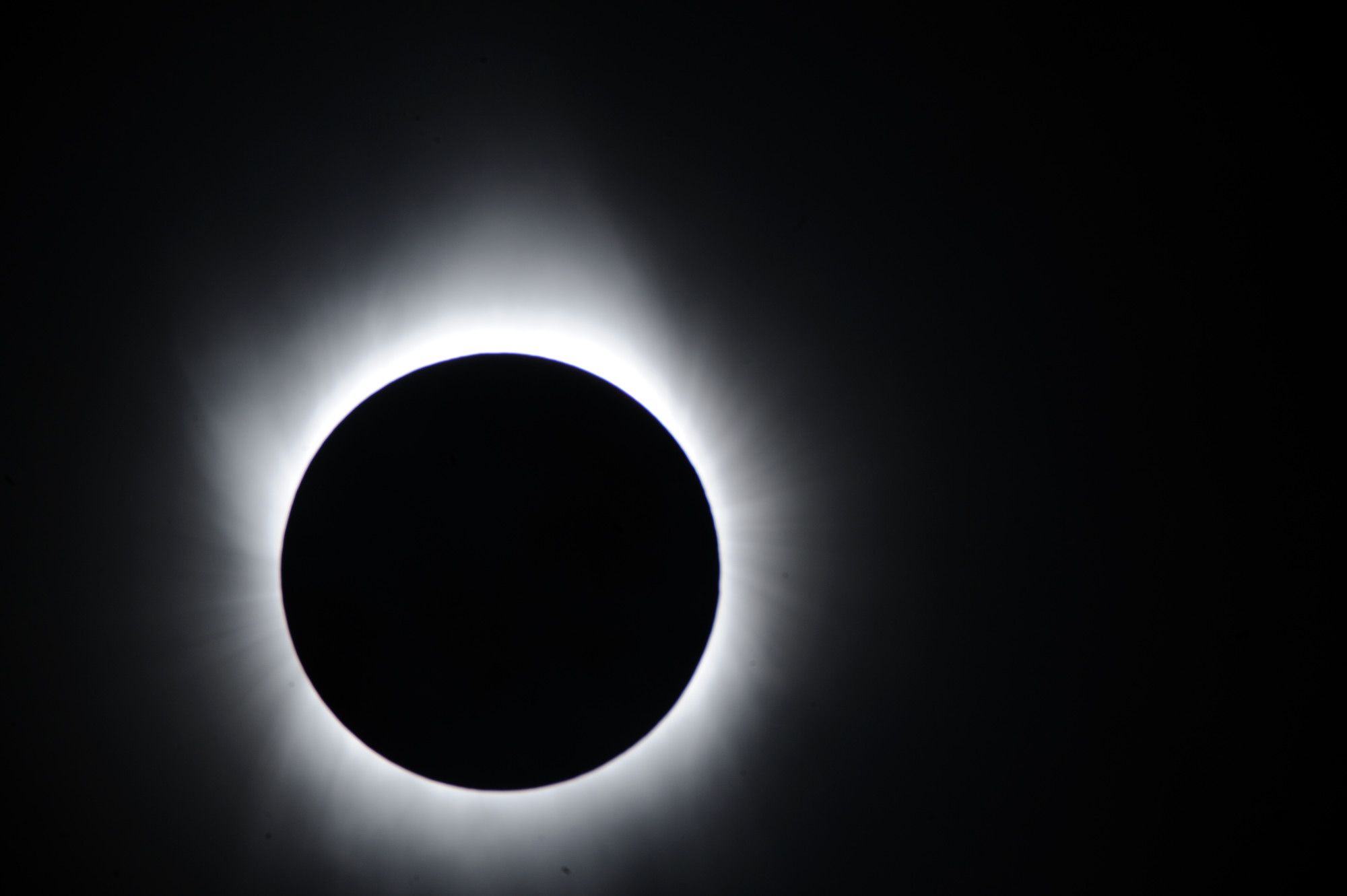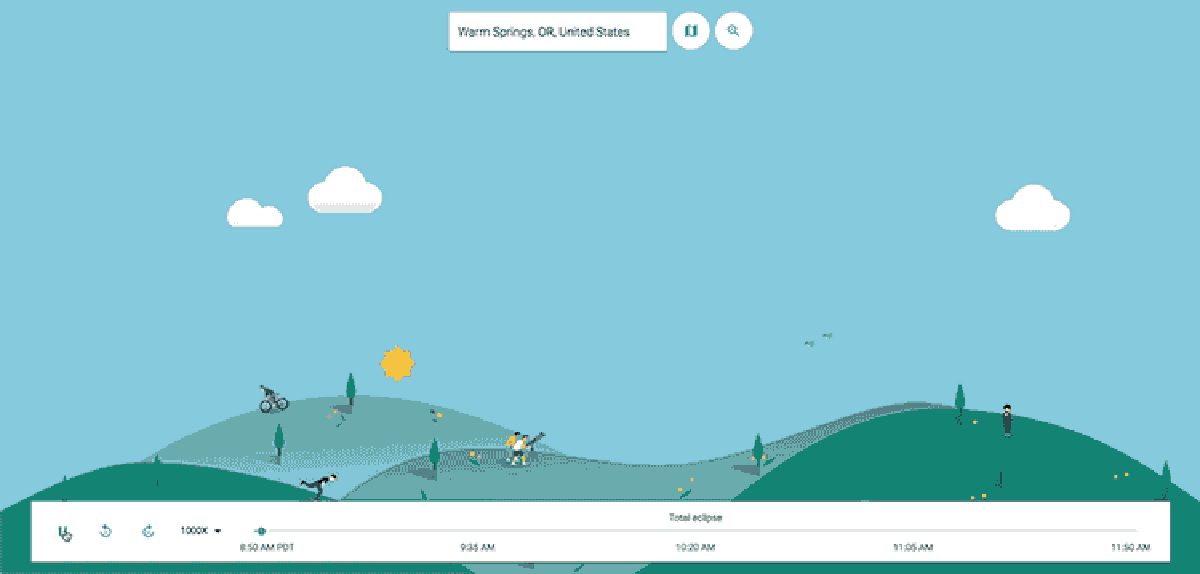
On August 21, people across the U.S. will see day turn to night as a total solar eclipse passes over North America. The last time the path of a total solar eclipse passed across the country from coast to coast was 1918, so this year's event is, as expected, generating considerable excitement.
For those eagerly anticipating the eclipse, Google and scientists at the University of California, Berkeley, have created a simulator that allows you to watch what will happen to the sun where you live on the day.
The simulator is part of the Eclipse Megamovie Project and can be accessed here. Users can enter their ZIP code or the name of their town or city to see an animation of the sun's light being blocked out by the moon—including what time to watch.
The simulator also shows the sky darkening for those who are directly in the path of the eclipse.
Dan Sevin, who is leading the project at Berkeley, said in a statement: "There are lots of online animations of the 2017 eclipse, but you can't use them like ours to get a sense of the full experience, including your surroundings. Our simulation is closer to what one might experience in a planetarium show."
The team also says people can use their tool to work out where to get the best "total solar eclipse experience."

Jay Pasachoff, eclipse advisor on the Megamovie project, said: "If you are off to the side—even just a little bit where the Sun is not 100 percent covered by the Moon—it is like being in the parking lot of the stadium during the Super Bowl but not really inside seeing the game."
The total solar eclipse will move across the country over the course of the day. It will encompass a band that is about 72 miles wide. The states covered by the eclipse are Oregon, Idaho, Montana, Wyoming, Nebraska, Kansas, Iowa, Missouri, Illinois, Kentucky, Tennessee, Georgia, North Carolina and South Carolina.
The Eclipse Megamovie Project aims to get more than 1,000 amateur astronomers and photographers to document the event. They are asking people to submit their images so they can be "stitched together" into a film documenting the path of the eclipse.
"While no one on the ground will see the total eclipse for more than two minutes and 40 seconds, depending on how close they are to the center of the path of totality, the images collected by the Megamovie's volunteer team will be turned into a 90-minute eclipse movie unlike anything seen before," UC Berkeley said in a statement.
Hugh Hudson, an astronomer at the university, was one of the people who first proposed the project. He said the movie produced will be an important tool for scientific research. Images taken just before and after the eclipse will help astronomers map the geography of the sun, including providing a refined estimate of its actual size.
"The movie is a tool for scientific exploration," he said. "We'll be collecting this level of data for the first time, from millions of observers, and it will be a valuable archive…we don't know what we'll see or what we'll learn."
Uncommon Knowledge
Newsweek is committed to challenging conventional wisdom and finding connections in the search for common ground.
Newsweek is committed to challenging conventional wisdom and finding connections in the search for common ground.
About the writer
Hannah Osborne is Nesweek's Science Editor, based in London, UK. Hannah joined Newsweek in 2017 from IBTimes UK. She is ... Read more
To read how Newsweek uses AI as a newsroom tool, Click here.








